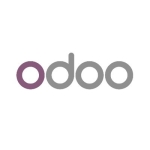What is our primary use case?
Oracle Fusion is a game-changer for businesses, especially when compared to the traditional on-premise EBS system. It is like having a powerful suite of modern ERP tools in the cloud, eliminating the need for hefty infrastructure investments. I can access it from anywhere, anytime, using any device, which is fantastic for our global operations. From managing customer relationships to handling HR tasks, supply chain operations, and project management, Oracle Fusion covers it all with advanced features.
What is most valuable?
In my 15 years as an Oracle consultant, I have found that Oracle's strength lies in swiftly building and deploying enterprise applications globally. The modules, spanning various domains, efficiently automate multinational business processes within a few months. The real value emerges as these applications provide clear visibility into business transactions, enabling faster decision-making for management.
What needs improvement?
While Oracle Fusion has numerous strengths, there is room for improvement. One notable area is the user interface, where new users may find it challenging to navigate. The UI experience needs refinement to enhance user-friendliness. Additionally, some newer modules within Oracle Fusion are not yet fully stabilized, posing challenges for users. In the competitive landscape, certain modules excel in Oracle Fusion, while others may be better suited to alternatives like SAP, Workday, or Salesforce. The constant evolution of features, such as AI-enabled capabilities in the recruiting cloud, demonstrates both the advantages and disadvantages inherent in Oracle Fusion. Despite these areas for improvement, the overall advantages seem to outweigh the challenges from my perspective.
For how long have I used the solution?
I have been working with Oracle Fusion Service for five years.
Buyer's Guide
Oracle Fusion Service
October 2025
Learn what your peers think about Oracle Fusion Service. Get advice and tips from experienced pros sharing their opinions. Updated: October 2025.
872,655 professionals have used our research since 2012.
What do I think about the stability of the solution?
I would rate the stability of the solution as an eight out of ten.
What do I think about the scalability of the solution?
Oracle Fusion Service is highly scalable. I would give it a ten out of ten. I have worked with a considerable number of clients, with one project involving close to 50,000 users and another project with 10,000 users.
How was the initial setup?
Setting up Oracle Fusion depends on the chosen module and subscription. Suspending service with Oracle is the first step. Some modules, like parallel integration and benefits compensation, might seem a bit complex, but it is manageable when the business requirements are clear. The key is gathering and understanding these requirements well, conducting a gap analysis, and configuring the application based on the management's instructions. With a clear picture of what is needed, the setup becomes easier.
What was our ROI?
The return on investment in Oracle Fusion depends on the specific needs of the organization and the modules chosen. Oracle Fusion operates on a model where you pay for the specific domains and offerings you require. It is a tailored approach, ensuring that you get value for the money spent on the functionalities that are essential to your operations. This personalized payment model contributes to a more targeted and potentially higher return on investment for organizations using Oracle Fusion.
What's my experience with pricing, setup cost, and licensing?
The cost of Oracle Fusion varies based on factors like the number of users, licenses, data volume, and integrations. It is a flexible pricing model, and the SaaS model means costs are often tied to usage. The more extensive your usage, the higher the price may be. Specific pricing details would depend on your organization's requirements and the modules you choose. I would recommend consulting with Oracle or their authorized representatives for a detailed and accurate cost estimation based on your specific needs.
What other advice do I have?
Using Oracle Fusion depends on the specific modules and business sectors you want to target. Oracle Fusion has unique selling points tailored to different business areas, and its performance varies across modules. Generally, Oracle Fusion has been performing well across various business environments, but its suitability depends on the specific needs of your organization. Overall, I would rate Oracle Fusion as an eight out of ten.
Disclosure: My company does not have a business relationship with this vendor other than being a customer.




















